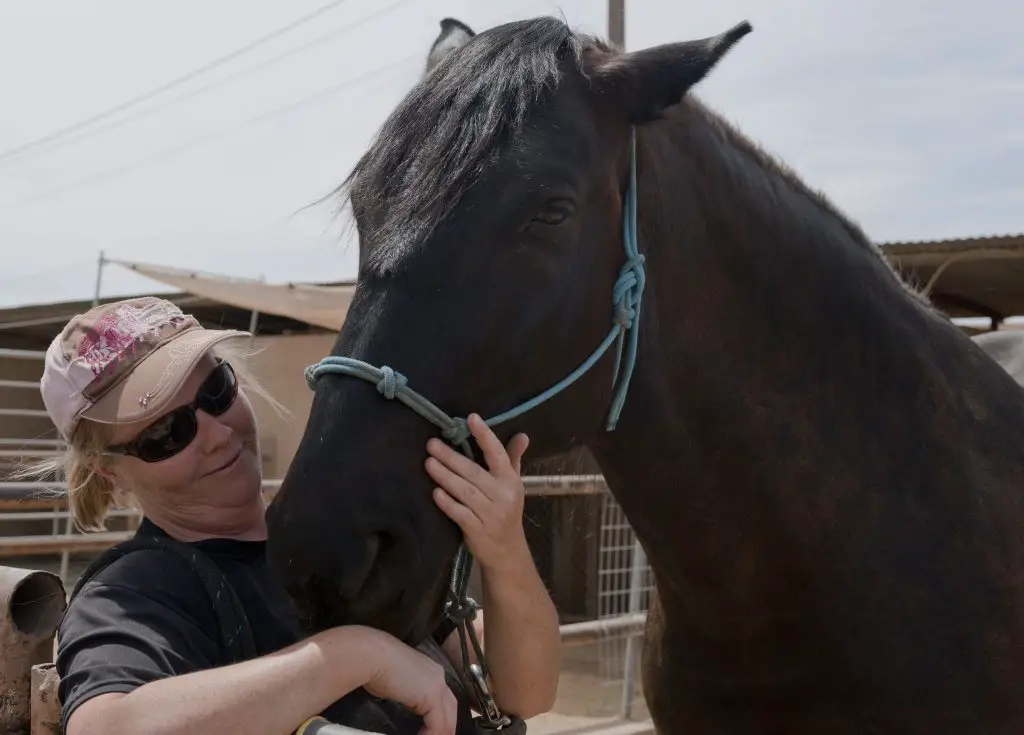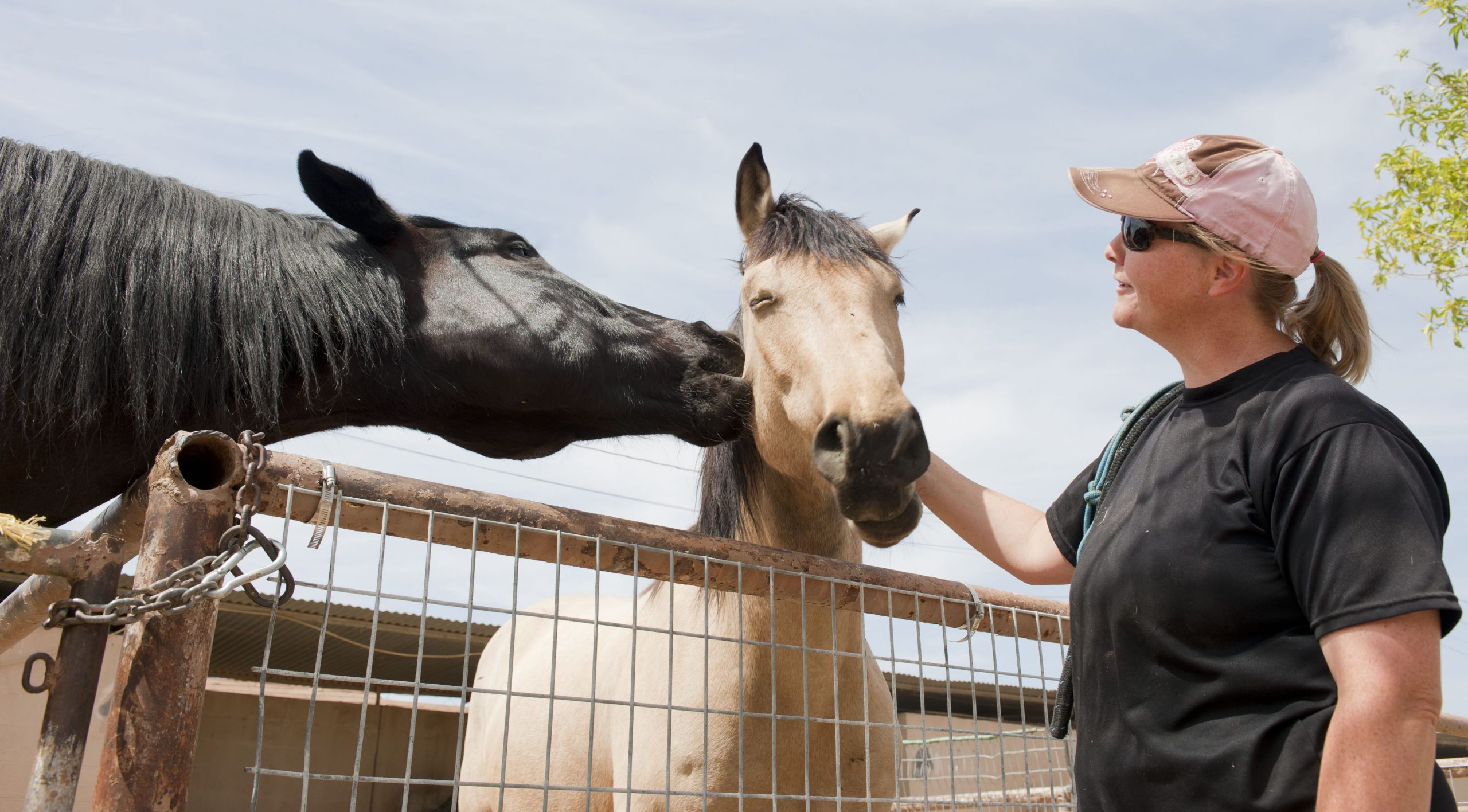Last Updated on July 29, 2020 by Allison Price
Owning a pet is quite a responsibility.
Dogs, cats… horses!
Having a horse is a full-time responsibility. They need a stall, pasture, feed, and daily care. And we know we are busy and there’s so much to do. It will be a challenge to spend a lot of our time taking care of our horses. This is where boarding facilities come in! Horse boarding lets you house your horse in a professional facility. They provide different levels of care for your horse.
If you want a more hands-on approach, self-care boarding is for you! We will go into details of what it is and your responsibilities in self-care boarding. Also, we’ll have a glimpse on the other horse boarding stables.
What is Self-Care Horse Boarding?
Self-care is a good choice if you’re able to get out to the barn every day.
If you feel confident in your horse keeping abilities, this is a good option.
This arrangement gives a place for your horse to live. It’s the most affordable boarding. Also, it makes you a hands-on owner even though you don’t have a farm of your own. You will track your horse’s daily feeding and stall cleaning and any other care he needs.
Almost all self-care situations need boarders to buy their own hay, horse feed and bedding. They will also be the ones to furnish their own horse stable supplies. Do not forget these factors when you calculate the cost. Also, don’t underestimate the effort required to look for good quality horse hay.
What Are My Responsibilities in Self-Care Boarding?

It is important to ensure you take your responsibilities seriously when self-care boarding. You will be the one to take care of the well-being of your horse. This involves:
- Mucking out the stall and keeping his space clean, safe, and comfortable.
- You will need to buy some things mentioned above that your horse needs.
Most professional boarding facilities need horse owners to sign a contract. Be sure to fully read your contract and ask any questions. It will help you understand before signing. Contracts help ensure the safety of both your horse and yourself. You will also know what’s expected of you. Avoid word-of-mouth contracts because they are subject to change. Your horse can be put at risk.
One of the most important things to do in self-care horse boarding is to always clean up after yourself. After grooming your horse, sweep all areas. Clean any manure from the training rink. Also, put away any barrels, jumps, or trotting poles you used that day. Leave the stable facilities in a better condition than you found them. It will always show how much you care and respect the owner’s facilities.
Benefits of Self-Care Boarding
There are benefits of self-care boarding for both horses and owners. Here are some:
- A clean, tidy, and in good condition space for your horse
- You will be the one responsible for the care of your horse (hands-on)
- Lots of time to spend with your horse and develop good and trusting relationship
- Lesser cost
- Being totally in charge of the well-being of your horse
- There are other horse owners around who are more experienced and can give you advice
- This kind of arrangement could be just what your horse needs
Increase Boarding and Care
Some horse owners find it hard to keep up with the demands of self-care boarding.
In that case, it may be worth finding out whether you can increase the boarding and care of your horse on-site. Some facilities offer other boarding options. There could be another alternative that will work for you.
We should not be ashamed to ask for some help. So, if you feel like you are struggling to keep up, talk to the facilities’ manager. They would be happy to help and assist you.
Other Horse Boarding Stables
There are different types of boarding arrangements available. It depends on the owner’s and horse’s needs. Below is an overview of the types of board offered at many boarding stables:
Partial-care Boarding
If you want to be a hands-on horse owner but can’t commit to coming to the barn twice a day every day, consider this!
This kind of arrangement varies from barn to barn. It can be a situation where the barn staff feeds and turns out your horse in the morning. Your only responsibility is to bring your horse in, do the evening feeding and clean the stall.
Some partial barns form owner co-ops. They share the labor. Make sure you have full understanding on the requirements before choosing this.
Full-care Boarding
The stable takes care of all your horse’s daily needs in this boarding.
It typically means feeding, stall cleaning and turnout. Blanketing and other extras may or may not be included. Veterinary service might also be provided. It is a great option for horse owners with busy schedules.
Full-Service Boarding
There are barns offering an option that provides full care plus some extras.
In this situation, your horse will have a daily grooming. Daily blanketing, horse fly spray and fly masks will be taken care off by a barn staff. They will also change the blankets in case the weather shifts during the day. They will bring in your horse, hold him for vet and farrier appointments.
This can be a big help for horse owners who work full-time. But this kind of boarding is quite costly.
Training Board
Horse owners who are working toward some competitive goals usually choose this.
Having your horse in a training program will help you get where you want to be. Training board is generally paired with full-care or full-service boarding. A professional trainer will work with your horse on top of the services they provide. A set number of lessons for you may also be inclusive in the package. Some training barns limit how much owners can ride their horses in full training.
This could slow down or even reverse your horse’s progress in training. Make sure that you and the trainer understand the expectations.
Summary
Self-care boarding is for you if you want a more hands-on approach in taking care of your horse. Horses are provided with a stall and pasture. You will be the one to provide all the daily care requirements. There are responsibilities that you need to take care of. But it is generally one of the cheaper options available. It doesn’t need full care of the horse. It reduces your monthly rent. Also, it will help you ensure your horse receives the care you want for him.


